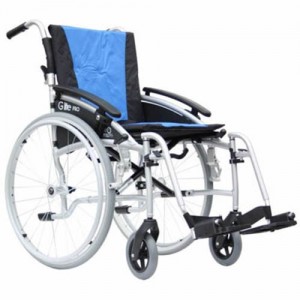Wheelchair users enjoy a foreign holiday just like anybody else. Your disability (whether congenital or recent) needn’t hinder your break. There are unique challenges to taking your wheelchair abroad, but with some effective planning and raising awareness with the travel company, airport and flight crew, your journey can move smoothly and quickly.
At the Planning Stage
 You’re going on holiday and need to take your wheelchair abroad with you. Great – the first consideration is a list of destinations and their policy and regulations on disabilities. The developed world has laws on accessibility and mobility, but some far away destinations may not. You should first consider whether your intended holiday destination is disability friendly.
You’re going on holiday and need to take your wheelchair abroad with you. Great – the first consideration is a list of destinations and their policy and regulations on disabilities. The developed world has laws on accessibility and mobility, but some far away destinations may not. You should first consider whether your intended holiday destination is disability friendly.
Also, research insurance costs. These will be cheaper inside the European Union. Most travel insurance is not expensive, but disability and congenital illness can push the cost up. Don’t be tempted to go for cut-price insurance; ensure the policy covers everything you will need.
It may be a good idea to consult disability organisations to see specific travel advice for your intended destination and using your wheelchair abroad. Naturally, also check general travel advice.
Before and After You Book
You’ve chosen a destination and a hotel and now you’re going through the booking process. First, check your legal requirements for prescription medicines. You may need to take a copy of your prescription; travelling inside the EEA won’t require this due to unified regulation. However, if you find your medication is not licensed in your destination country, you’ll need medical advice.
Contact ABTA (Association of British Travel Agents) for specific advice on your country of destination. Don’t forget to include any disability information on your booking that will help the booking agent and airport can help you have a stress-free holiday. Inform them of the nature of your wheelchair that you wish to take abroad – pointing out whether it is manual or powered.
Finally, as soon after booking as possible, contact the airline to inform them of your disability (or confirm) and to inquire about assistance dog policies and how they will help you ahead of your flight. Despite legal requirements listed below, it is your responsibility to ensure all parties involved in your travel are aware of your disability.
At the Airport
For ar ound 10 years now, it has been illegal for tour operators and airlines to refuse to carry passengers purely to their disability. The only exception is where it is physically impossible for them to get you on the flight. This is why it’s imperative that you fully disclose the nature of your disability and the need to take your wheelchair abroad. They are, however, obliged to provide a viable alternative transportation method. The overwhelming majority of passengers will disabilities fly without too much trouble and have an enjoyable holiday. Further regulations state:
ound 10 years now, it has been illegal for tour operators and airlines to refuse to carry passengers purely to their disability. The only exception is where it is physically impossible for them to get you on the flight. This is why it’s imperative that you fully disclose the nature of your disability and the need to take your wheelchair abroad. They are, however, obliged to provide a viable alternative transportation method. The overwhelming majority of passengers will disabilities fly without too much trouble and have an enjoyable holiday. Further regulations state:
• The airport authority must assist from arrival to boarding for departing from EU airports
• Employees are required to undergo training in assisting people with disabilities, equality and awareness
• EU-based airports and airlines are required to carry your wheelchair without charge.
Arriving Abroad
If arriving in an EU destination, the same assistance you received on departure is required for passengers arriving at EU airports. This means that while the UK is in the European Union if you are travelling to an EU member state, both airports are required to offer full assistance from airport arrival to flight departure.
If you researched the hotel for disability access and the accommodation is as described, then we do not foresee problems taking your wheelchair abroad. Mix-ups occasionally occur though. It’s not good to you being on the 5th floor of a hotel with no lift. Don’t be afraid to ask to move rooms if the one allocated is not suitable. If the hotel is unsuitable, discuss with the travel agent about switching.
